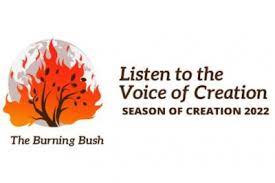Climate Disasters, Human Impacts

Fifteen inches of rain in 24 hours. Millions experiencing famine on the Horn of Africa as a result of a severe, prolonged and persistent drought. Wheat as a diplomatic tool between Russia, Ukraine and the
U.S. and all of their allies. Devastating floods leaving one-third of Pakistan under water. Hundreds of homes destroyed by wildfires in California, Oregon, Washington and other western states. These are just
a fraction of the impacts of the rapidly advancing climate change the earth and its people are experiencing. The impacts of climate change are severe. In response to a “once in a 1,000 year” flood, the City of Austin, Texas, purchased over 800 homes that were destroyed. While the affected individuals and/or families surely experienced financial stresses, the losses can’t be measured on an adding machine. The real losses are in the disruption and upheaval of the people, their families and their community. While it was nice that the City of Austin bought those homes, in order to avoid a repeat of the flood damage, it does not erase the pain experienced by that community and the irretrievable social cost to those individuals and families. The loss of their natural safety net will make the reintegration of these families into their new neighborhoods, wherever they may be, a challenge requiring additional financial, mental health and other social services support to be successful.
In other parts of the world drought and the disruption of agrarian economies has prompted political and military conflict as some use control of food supply as a means to exercise control. For those trapped in such circumstances the only option may be to migrate for food, freedom and safety, usually at great peril. But for those who can relocate, the impacts are the same: disruption of lives, the economy and
loss of the communities which offered safety and stability. This world we live in is a gift as a part of the miracle of Creation and the ongoing creative process. This gift must be cherished and cared for. What we are experiencing is our collective failure to care for this intricate web of creation. We must take climate change seriously. We can take individual steps to contribute to limiting its impact. But we must also become vocal advocates for policies and behaviors that will, at the very least, halt the progress of this insidious process that, over time, we have brought upon ourselves. Taking climate change seriously and moving into action is a matter of self-interest that should be a very powerful motivator. It may sound selfish, but it is time we take action FOR OURSELVES that may also restore the ecological balance, in our little piece of creation, for everyone.
Dick Farnsworth is an active member of St. Luke’s Public Policy and Environmental Action Team, PPEAT.
